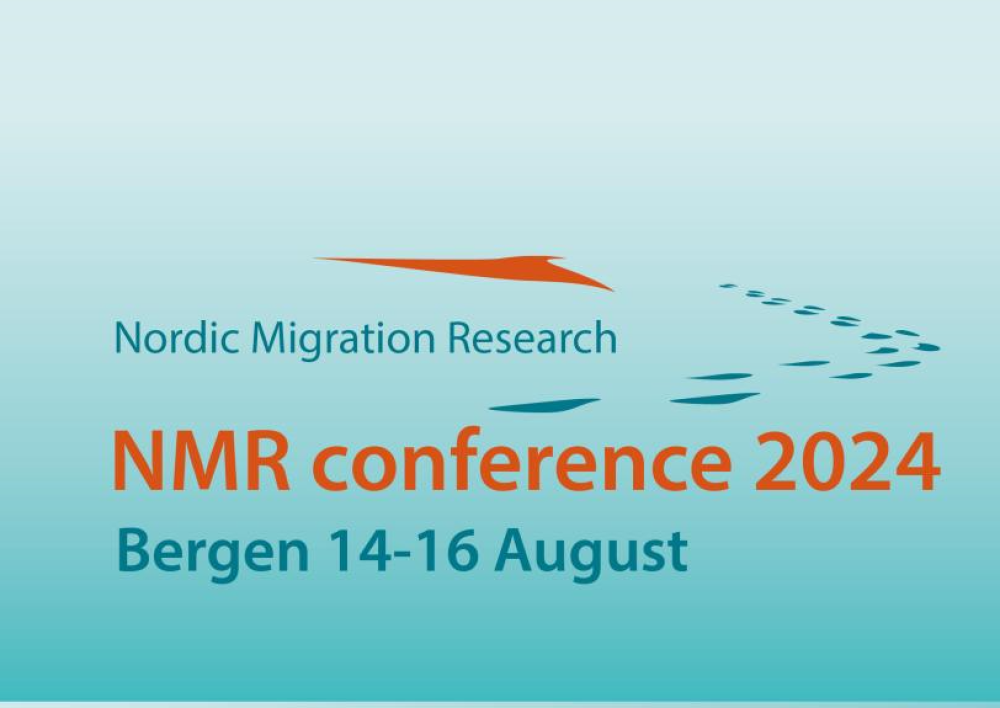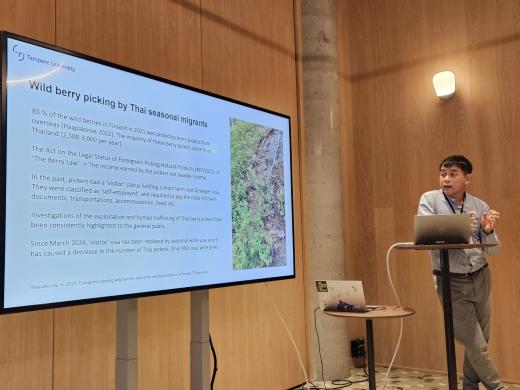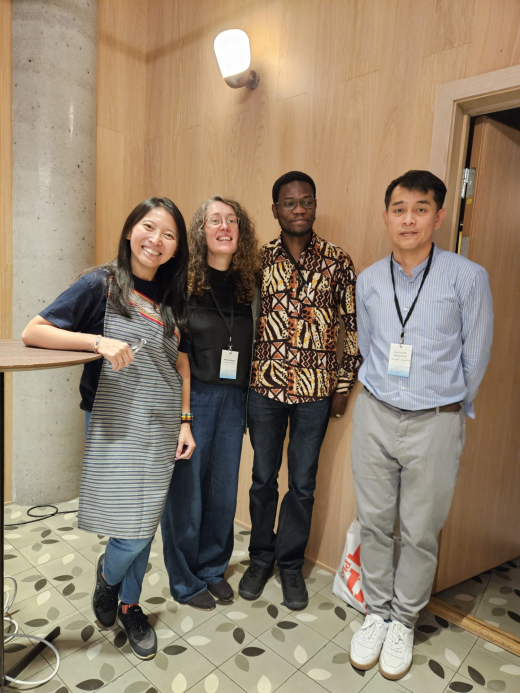News
Co-hosted workshop panel at NMR Conference 2024
15 August 2024

The Tampere team co-hosted a workshop panel entitled "Rural migrations and precarity: from lived experience to policy making" during the Nordic Migration Research conference organised in Bergen (Norway). The goal was to explore the growing phenomenon of labour-related migration to rural areas, a form of international mobility gaining increasing importance in the global economy. While urban settings have historically been the focus of studies on precarious migrant labour, rural areas are now emerging as critical sites where socio-spatial inequalities are reflected and reinforced.
As such, the workshop highlighted the expanding reliance on migrant labour for essential work in rural sectors such as berry-picking, horticulture, forestry, fish processing, and care services. This workforce, often underpaid and employed under flexible arrangements, is seen both as a lifeline for peripheral rural economies and as vulnerable to exploitative practices. With minimal state intervention and insufficient labour protections, the European agricultural sector, for instance, has been described as engaged in "a race to the bottom" in terms of wages and working conditions.
With the presentations entitled "Journey of hope or journey of despair: Unpacking the lived experiences of Thai berry pickers in Finland” (Chaitawat Boonjubun) and "Migration for the sake of lively rural regions? The case of wild berry industry related mobility” (Minna Seikkula), TAU team examined various dimensions of this issue, including empirical studies from specific regions, theoretical insights into the dynamics of rural migration, and advocacy efforts promoting fair and decent work. Topics such as temporary, permanent, and circular migration patterns, as well as institutional responses to deregulated rural labour markets, are particularly welcome.
This interdisciplinary gathering aims to shed light on the challenges and opportunities posed by rural labour migration and encourage collaborative approaches to ensuring equitable labour standards in these regions.

